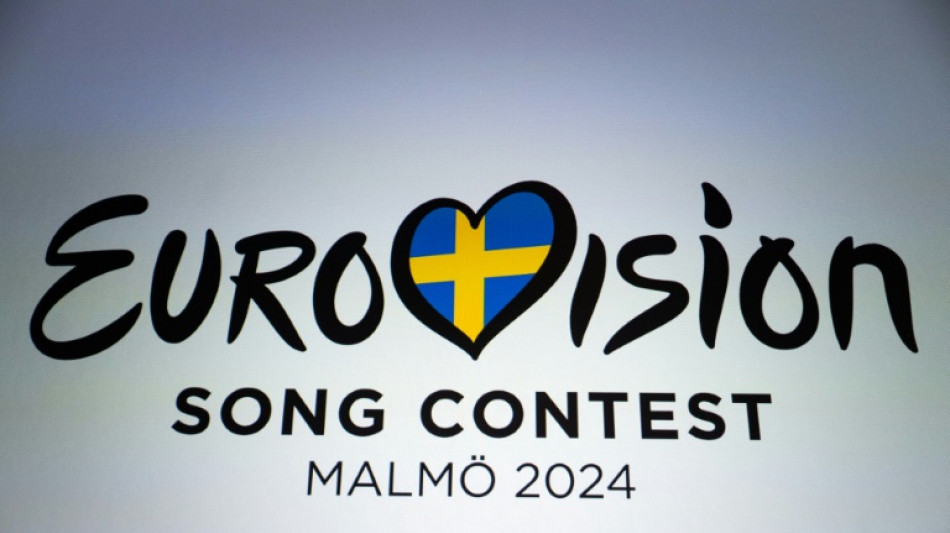

Israel threatens Eurovision pull-out if entry vetoed
Israel on Sunday warned that it may withdraw from this year's Eurovision Song Contest if organisers reject the lyrics from its entry as too political.
Eden Golan and her song "October Rain" were chosen to compete in the annual competition, which is being held in May in Malmo, Sweden.
Media reports have suggested that the song, which is mostly in English with some Hebrew words, references the victims of Hamas's October 7 attack on southern Israel.
That could mean the ballad and its 20-year-old Russian-Israeli singer fall foul of Eurovision rules, which ban political statements.
"They were all good children, every one of them", says a line from Golan's song, according to the website of the Israeli Public Broadcasting Corporation (Kan) which published them in full.
"There is no air left to breathe, There is no place for me," the song ends.
The European Broadcasting Union (EBU) said only that it was "currently in the process of scrutinising the lyrics" and a final decision had yet to be taken.
"If a song is deemed unacceptable for any reason, broadcasters are then given the opportunity to submit a new song or new lyrics, as per the rules of the Contest," it added.
Kan said it was "in dialogue" with the EBU about the country's Eurovision offering before the March 11 entry deadline.
But it stated that the broadcaster has "no intention to replace the song".
"Meaning, if it is not approved by the European Broadcasting Union, Israel will not be able to participate in the competition," it added in a statement on Thursday.
Israel's Noa Kirel placed third in last year's competition in Liverpool, England, behind Finland's Kaarija and Sweden's Loreen.
Loreen's victory takes the competition back to Sweden, 50 years after ABBA's victory with "Waterloo".
- Regular controversy -
Israel became the first non-European country to enter Eurovision in 1973 and has since won the competition four times, most notably with transgender singer Dana International in 1998.
But its participation and hosting of the event have regularly run into controversy.
In 2019, Icelandic band Hatari, who previously challenged Prime Minister Benjamin Netanyahu to a Nordic folk wrestling match, made pro-Palestinian statements during the vote count in Tel Aviv.
Organisers also gave pop queen Madonna a ticking off after her dancers flouted political neutrality rules by wearing Israeli and Palestinian flags on their costumes.
This year's competition comes against the backdrop of the war, sparked by Hamas's October 7 attack which resulted in the deaths of around 1,160 people in Israel, according to an AFP tally based on official Israeli figures.
Militants also took about 250 hostages, with 130 still held in Gaza although 31 are believed to be dead, Israeli officials said.
Israel's military response has killed at least 29,692 people in Gaza, according to the health ministry in the Hamas-run territory.
The EBU this week rejected calls for Israel to be barred from competing altogether because of the war in the Gaza Strip and the civilian casualties.
But the potential for a ban on its entry has caused outrage, with Israel's culture and sports minister, Miki Zohar, calling the prospect "scandalous".
Golan's song was "moving", he wrote on social media, and "expresses the feelings of the people and the country these days, and is not political".
"I call on the European Broadcasting Union to continue to act professionally and neutrally, and not to let politics affect art," he added.
Even President Isaac Herzog waded in, saying he was "trying to help" as much as he could because of the high-profile nature of the show.
"It's important that Israel appears," he was quoted as saying by news outlet Ynet.
X.Rivera--LGdM




